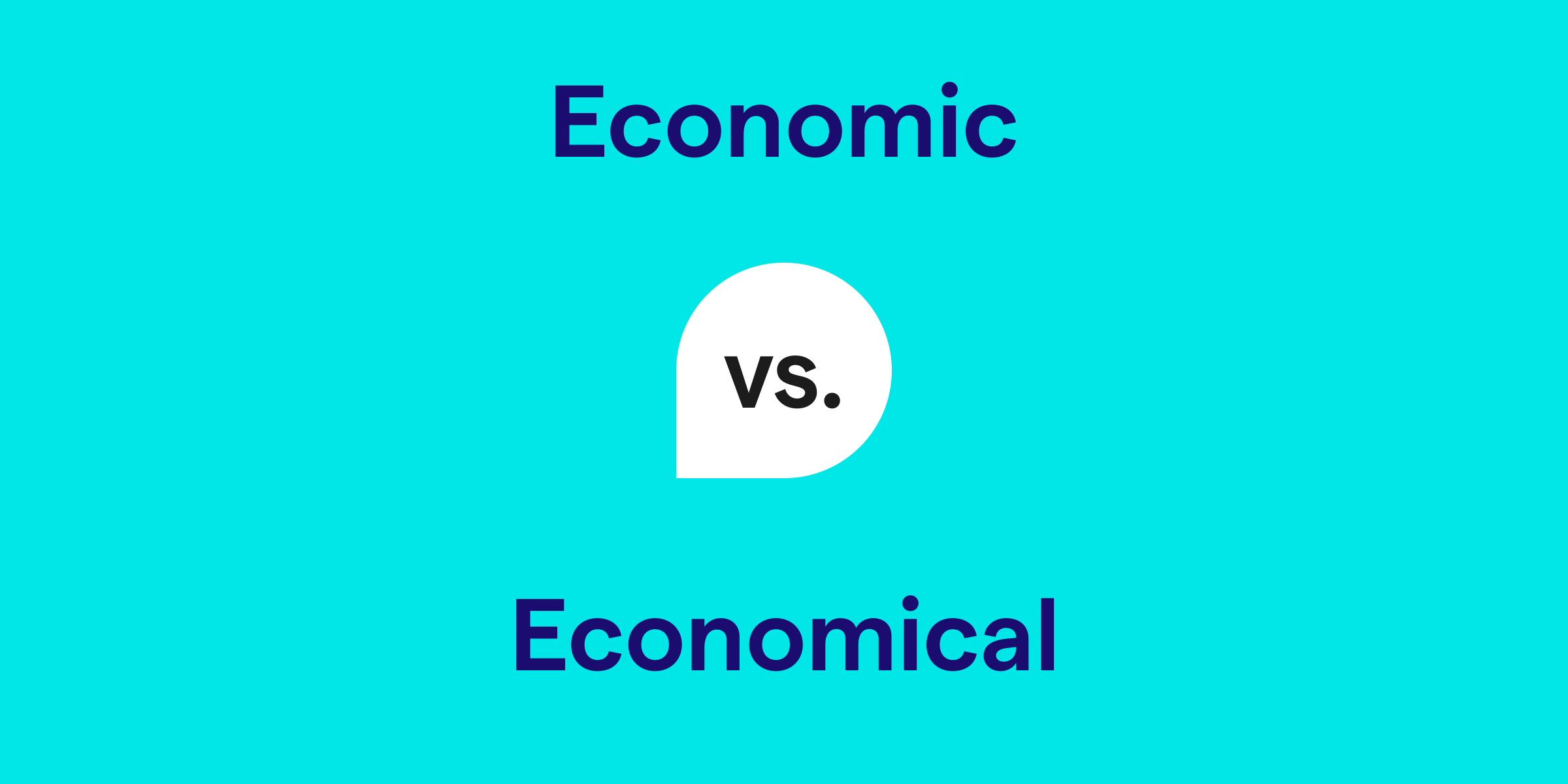Economic vs. Economical: What's the Difference?
The terms economic and economical are frequently confused due to their similarity in spelling and origin, yet they serve distinct purposes in language. Economic relates to economics or the economy, often used when discussing matters of finance, trade or industry. On the other hand, economical pertains to being thrifty or efficient in the use of resources, usually in reference to saving money or avoiding waste.

How do you use the word economic in a sentence?
The word economic is used when talking about topics related to the economy or finances. Broadly applicable in the context of countries, organizations, or policies, it can describe aspects related to economic theory, economic growth, or economic challenges. Whenever the intrinsic attributes of a financial system or market are referred to, economic is the appropriate term.
Examples of economic in a sentence
- The recent economic downturn has led to a significant increase in unemployment.
- Economic indicators suggest a potential recovery in the next quarter.
- Government economic policies play a crucial role in market stabilization.
How do you use the word economical in a sentence?
The word economical should be used when referring to the careful and prudent management of resources, such as money, energy, or materials. This term is often associated with cost-saving measures, fuel efficiency in vehicles, or any form of frugality. When suggesting that something delivers good value or efficiency for the money spent, economical is the fitting choice.
Examples of economical in a sentence
- Buying in bulk can often be more economical than purchasing small quantities.
- The new model of the car is praised for being economical on fuel.
- Her economical approach to grocery shopping allowed her to save a significant amount of money each month.
Economic and economical definition, parts of speech, and pronunciation
Economic definition:
Economic refers to anything pertaining to the science of economics, or the way goods and services are produced, distributed, and consumed. It is also used to describe factors affecting financial matters of a country, organization, or system.
Economic parts of speech:
Economic pronunciation:
Pronounced as /ɛk.əˈnɒm.ɪk/ or /ee-kuh-NOM-ik/, it typically comprises four syllables, with the stress on the third syllable.
Economical definition:
Economical means giving good value or service in relation to the amount of money, time, or effort spent. It is used to describe cost-effective methods or actions that save resources, particularly money.
Economical parts of speech:
Economical pronunciation:
Pronounced as /ˌiː.kəˈnɒm.ɪ.kəl/ or /ee-kuh-NOM-i-kuhl/, this term also has four syllables, with the primary accent falling on the third syllable.
Economic refers to anything pertaining to the science of economics, or the way goods and services are produced, distributed, and consumed. It is also used to describe factors affecting financial matters of a country, organization, or system.
Economic parts of speech:
- As an adjective: The government is focusing on several economic reforms.
Economic pronunciation:
Pronounced as /ɛk.əˈnɒm.ɪk/ or /ee-kuh-NOM-ik/, it typically comprises four syllables, with the stress on the third syllable.
Economical definition:
Economical means giving good value or service in relation to the amount of money, time, or effort spent. It is used to describe cost-effective methods or actions that save resources, particularly money.
Economical parts of speech:
- As an adjective: Using energy-saving bulbs is an economical choice.
Economical pronunciation:
Pronounced as /ˌiː.kəˈnɒm.ɪ.kəl/ or /ee-kuh-NOM-i-kuhl/, this term also has four syllables, with the primary accent falling on the third syllable.
Economic vs. Economical in a nutshell
Understanding the distinction between economic and economical is key to using each word accurately. Economic is aligned with the broader picture of finance and the economy, perfect for discussions involving fiscal markets and theories. 'Economical,' conversely, refers to cost-effectiveness and value, pertaining to saving resources or money. Remembering this clear division in meaning will ensure precise communication in both business and everyday contexts.
Get AI Writing Assistance Wherever You Type
Make sure your vocabulary is on point and every punctuation mark is in the right place, no matter where you’re working. Grammarly works across more than 500,000 websites and apps so you can improve your writing without copying, pasting, or breaking focus.

More Commonly Confused Words
Interest piqued? Pore (not pour) over other commonly confused words to help your writing reach peak (not peek) performance.